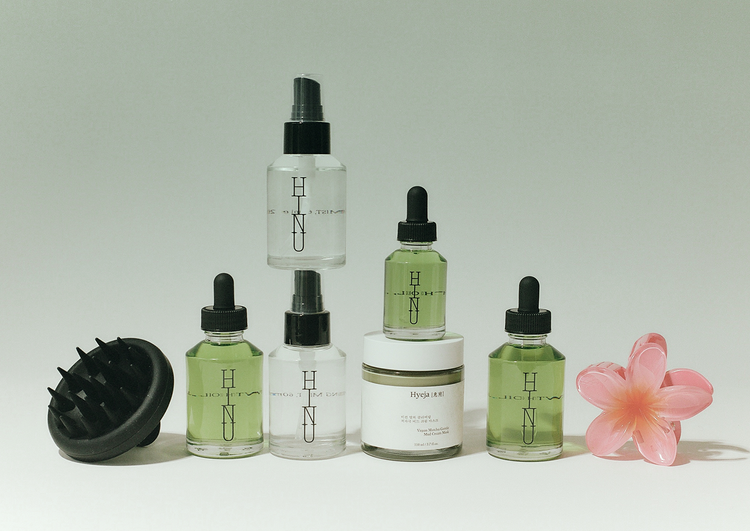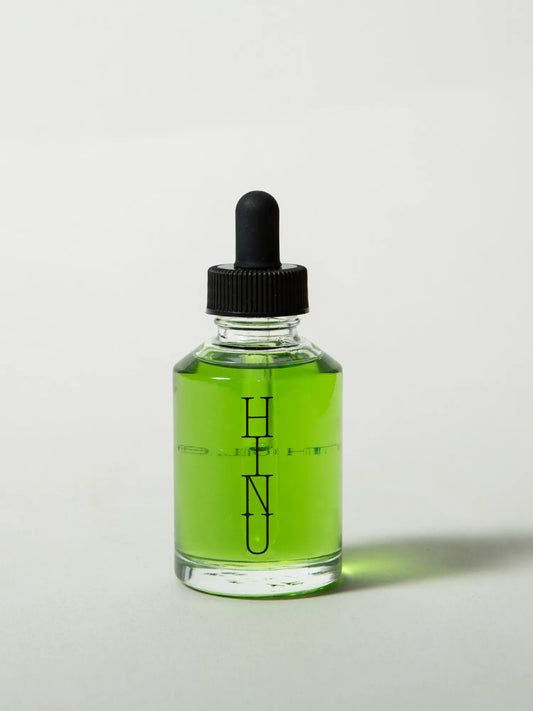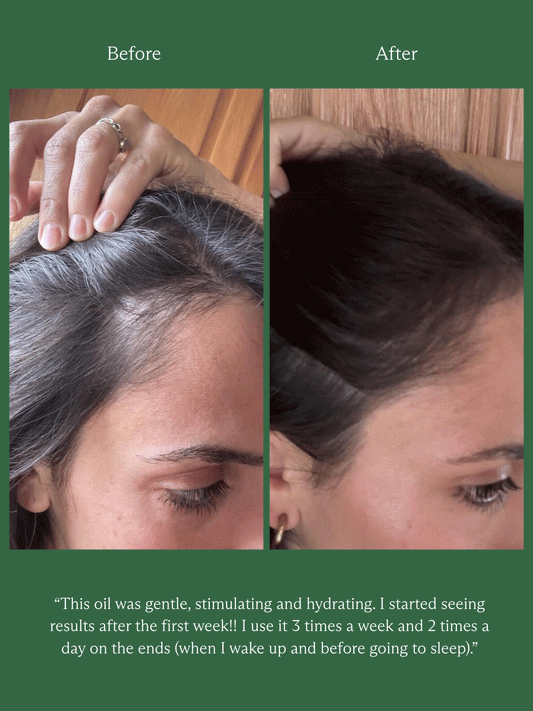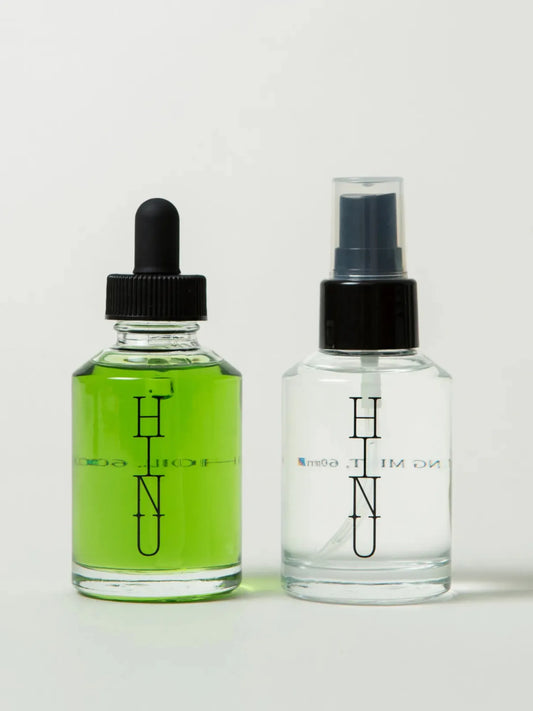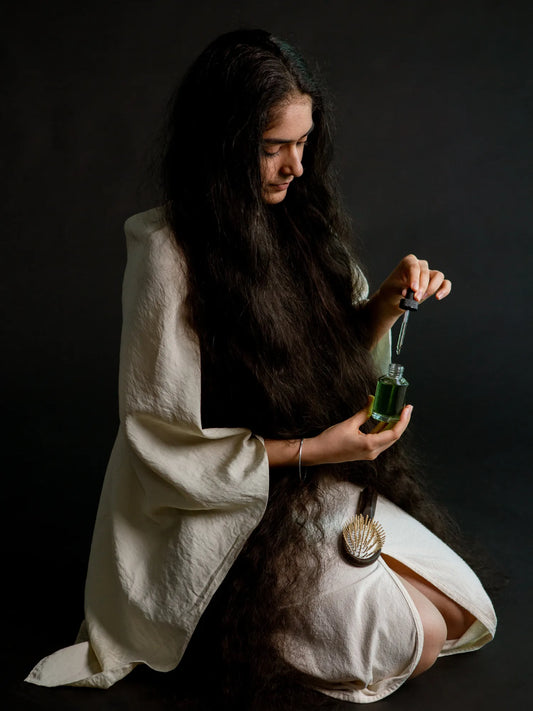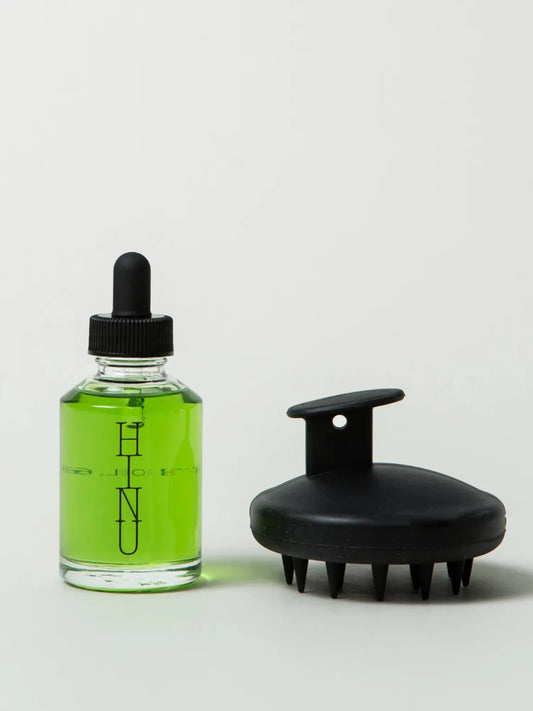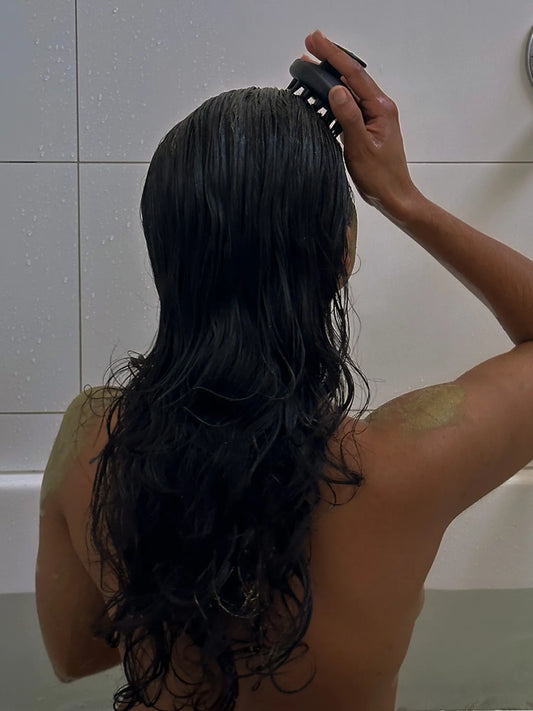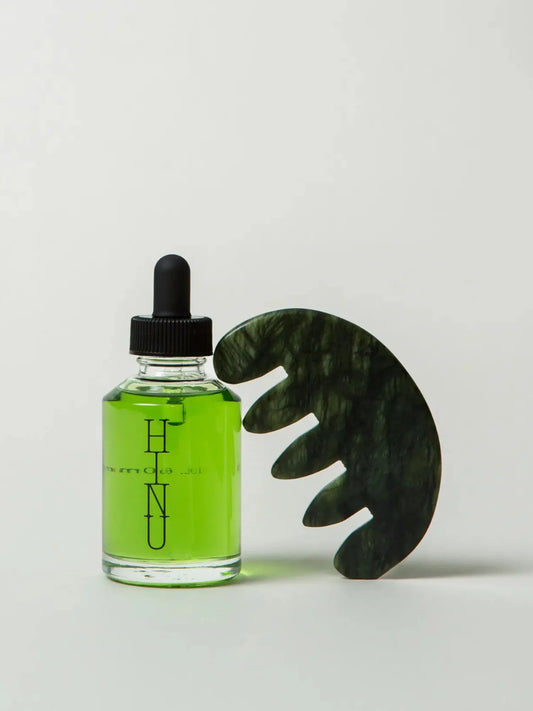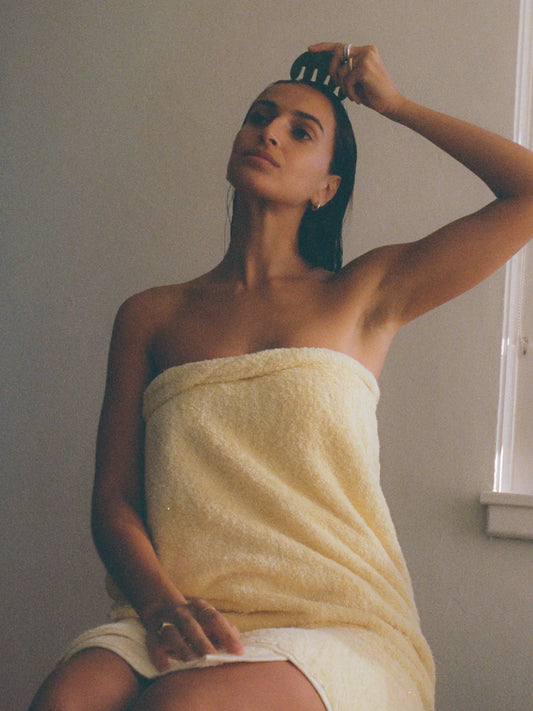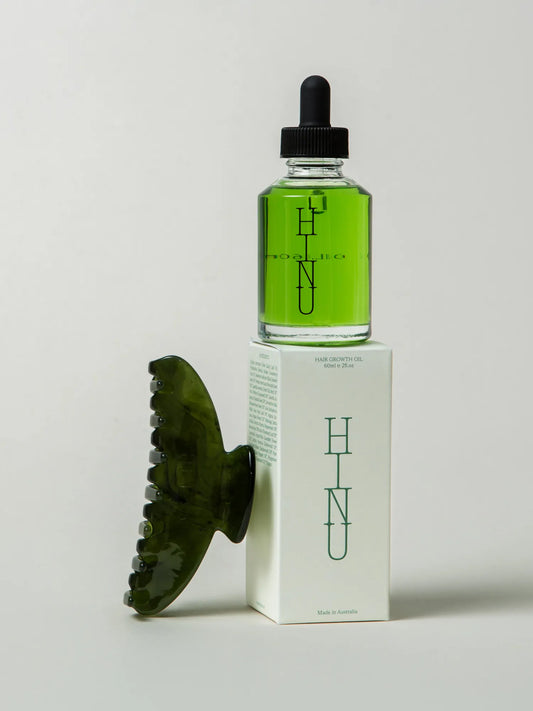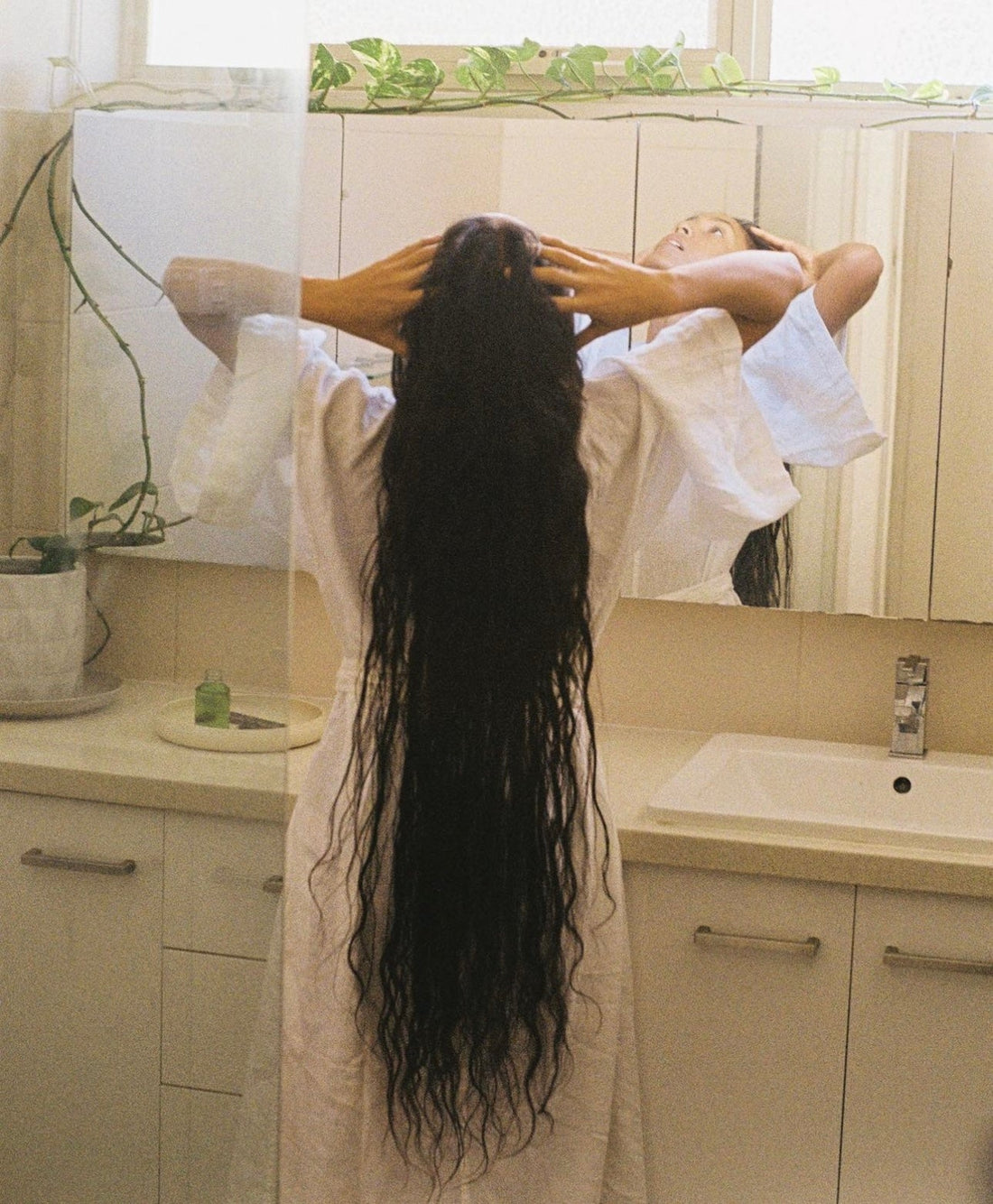
Historical Roots of Hair Oiling
Hair oiling, a treasure drawn from nature's bosom, has graced locks through countless epochs. This elixir, passed down through generations, bestows strength and shine, a testament to nature's bounty and ancestral wisdom.
Benefits:
- Continuous Nourishment: Hair oils permeate the hair shaft, offering consistent hydration and nourishment. This keeps the hair resilient against breakage and lends it a natural sheen.
- Scalp Stimulation: Massaging the scalp with hair oil enhances blood circulation, potentially promoting hair growth and overall scalp health.
- Natural Protection: Hair oils form a protective sheath around the strands, defending them from environmental elements, like UV rays, pollution, and even friction from clothing or pillows.
- Revitalises Dry Ends: For those with hair prone to split ends or dryness, oiling can provide the much-needed hydration and sealing effect to tame and restore those ends.
- Strengthens Hair Roots: Regular oiling fortifies the hair from the roots, ensuring lesser hair fall and enhanced hair strength.
Potential Downsides:
- Risk of Over-application: Applying too much oil can leave hair looking limp and excessively greasy, which might require multiple washes to fully remove.
- Potential for Build-up: If not rinsed properly, oils can accumulate on the scalp, leading to build-up and potentially clogging hair follicles.
- Specificity to Hair Types: Not every oil is suitable for all hair types. For instance, coconut oil might be too heavy for someone with fine hair, while someone with very dry hair might find lighter oils insufficient.
The Modern Marvel: Hair Masks
Born of today’s needs, hair masks are alchemical blends designed to address everything from the stresses of styling tools to the relentless assault of urban life. They are formulated potions tailored to counter specific hair dilemmas, offering a quicker fix for damaged locks.
Benefits:
- Targeted Treatments: Unlike generic conditioners, hair masks are designed with specific hair problems in mind. From addressing split ends, revitalising colour-treated hair, to enhancing curly hair’s natural pattern, there's a specialised mask out there tailored for every unique need.
- Deep Conditioning Power: Hair masks penetrate deeper into the hair shaft, offering an intense hydration boost. This not only combats dryness but also aids in repairing hair damage from heat or chemicals.
- Enhanced Protection: Many hair masks form a protective layer around individual hair strands, shielding them from environmental aggressors like pollution, UV rays, and even the abrasive effects of hard water.
- Restoration of Hair's Natural Luster: With regular use, hair masks can rejuvenate hair, restoring its natural sheen and softness. They often contain nourishing oils, vitamins, and other essentials that contribute to a healthy shine.
Potential Downsides of Hair Masks:
- The Hydration Threshold: While hair masks are designed to hydrate and rejuvenate, there's a limit to how much hydration hair strands can absorb in a single treatment. Over-saturating can lead to hair feeling weighed down or greasy, diminishing the natural bounce and volume.
- Harsh Chemical Concerns: Although many modern masks lean towards natural ingredients, some still contain harsh chemicals or synthetic fragrances which might not sit well with every scalp or hair type, leading to irritations or allergic reactions.
- Risk of Product Build-up: Regular use, especially of heavy or rich masks, can lead to product build-up on the scalp and hair. This accumulation can clog hair follicles, making hair feel heavy and look dull.
- Not a Daily Solution: Hair masks are potent treatments, and while they offer significant benefits, they are not designed for daily use. Over-relying on them can sometimes backfire, leading to an imbalance in hair's natural sebum production or texture changes.
- Cost Implications: High-quality hair masks, especially those with advanced or organic ingredients, can be on the pricier side. It's vital to ensure the chosen product is indeed beneficial and not just a momentary indulgence.
To get the most out of these modern marvels, it’s imperative to read the product labels, understand your hair's unique needs, and be judicious in application frequency and quantity.
Striking a Harmonious Chord
For souls who revel in traditions and seek nature's embrace, hair oiling serves as a comforting bridge to bygone times. However, for those in need of acute refreshment and seeking swift remedies, masks can shine as saviours.
Both treatments hold the potential to serve in their own way. Self-care, after all, isn’t about favouring the old over the new, but about striking a harmonious chord. In understanding each practice's strengths and limitations, one can choreograph a routine where both oiling and masks contribute to flourishing hair.
